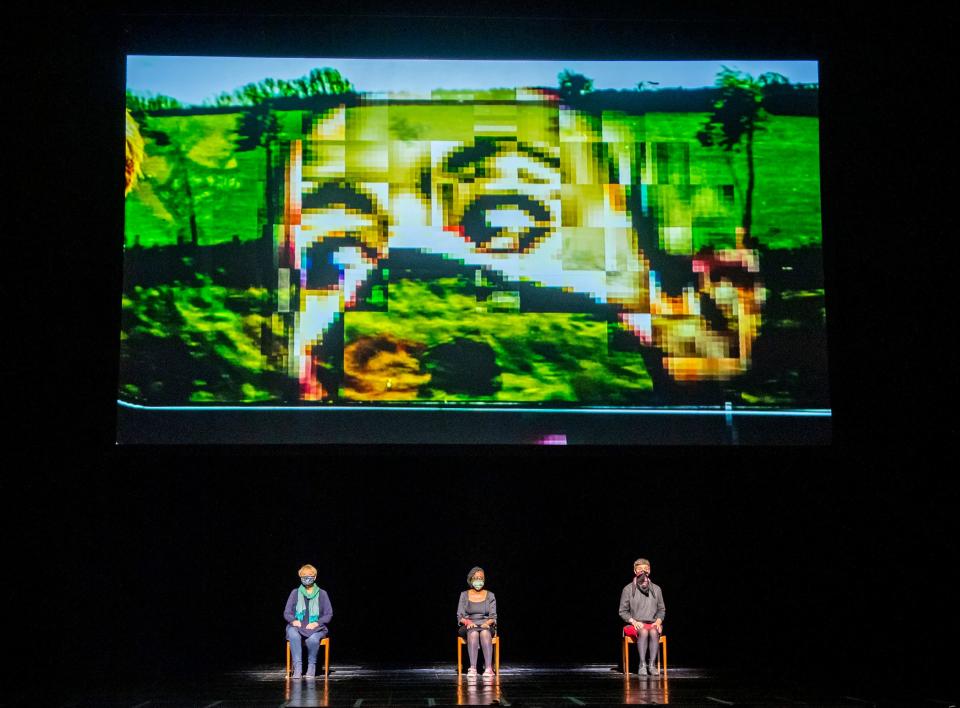New Dark Age, Royal Opera House review: a groundbreaking line-up of female composers

It took just one short evening featuring four female composers to more than double the number of women whose works have been performed on the Royal Opera House’s main stage over the whole of its long history. In that sense, New Dark Age – the second of the ROH’s specially programmed evenings of music drama this autumn – was a Bright New Dawn.
Groundbreaking is the only way to describe this first half of the evening, since Hannah Kendall’s The Knife of Dawn is the first opera to have been performed complete at Covent Garden since March. More significantly, Kendall is also the first composer of colour to have been heard here. British-born of Guyanese extraction, Kendall – who has received major commissions this year for the Proms and CBSO – wrote her opera in 2016 in tribute to the great Guyanese poet and activist Martin Carter, portraying him on hunger strike in a British colonial prison.
Ola Ince’s production, in a design by Vicki Mortimer as focused as the work itself, cleverly incorporates video (Akhila Krishnan) to give historic context. The opera is set in 1953 – just when Covent Garden was seeing the premiere of Britten’s coronation opera Gloriana – and as the only figure on stage Carter endures a mix of political and personal trauma. Tessa McWatt’s libretto interweaves five of Carter’s lyrically evocative poems.
Singing with warmth and verbal clarity, the baritone Peter Brathwaite characterised Carter as the epitome of a freedom-fighting intellectual. Alongside chamber forces (string trio and harp) in the pit, a trio of female voices, representing the family Carter longs to see, issue siren calls such as “Starvation may be your best poem yet”.
Jonathon Heyward conducted with precision and subtle nuance, finding the work’s fierce understatement. Though conceived for much smaller venues, Kendall’s intricate textures filled the space and took their rightful place at Covent Garden.

In the second half of the evening, pieces by three in-demand composers – Missy Mazzoli, Anna Meredith and Anna Thorvaldsdottir – supplied the audio for the director Katie Mitchell’s multi-media mixtape, entitled A New Dark Age. But the close juxtaposition of these composers, all at their most ambient, did none of them any favours. Far from being multi-layered, the whole thing felt monotonously linear; the excellent conductor Natalie Murray Beale was reduced in some places to beating time, even though she welded her forces seamlessly.
The visual aspect of the mixtape came from Grant Gee’s hypnotic, slow-motion video, which followed a trio a singers as they travelled around London on train and foot. Covid-19 warning signs dominated the landscape, and finally the masked singers were seen arriving at Coven Garden’s stage door to get the same temperature check as the audience had received. Safely distanced on stage, the trio blended smoothly — sopranos Anna Dennis and Nadine Benjamin, ethereal and warm, underpinned by Susan Bickley’s mezzo. But as a meditation on the present state of limbo, it already felt out of date.
Available to stream via roh.org.uk

 Yahoo Finance
Yahoo Finance 